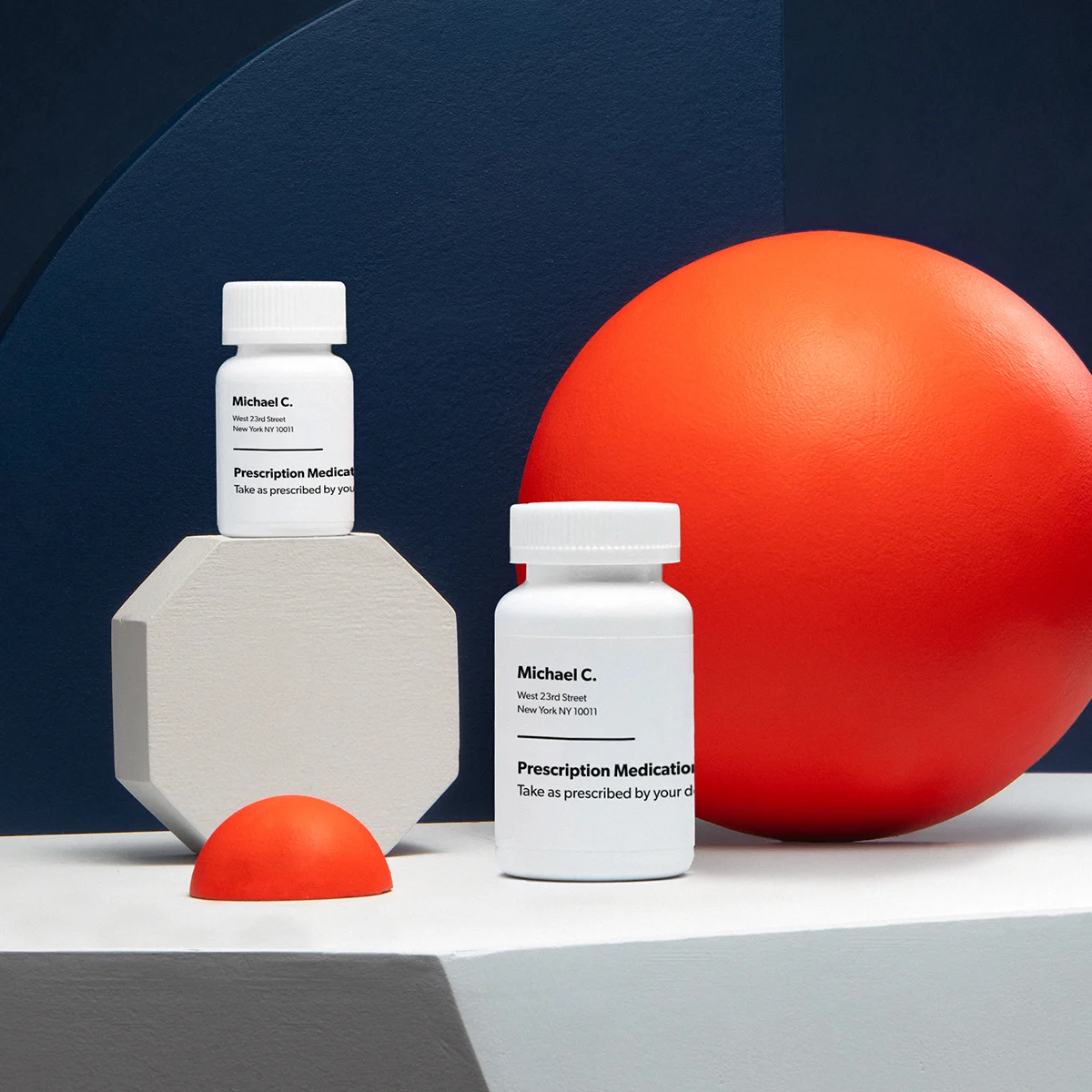Here's what we'll cover
Here's what we'll cover
Here's what we'll cover
A feeling of uncertainty, and maybe even fear, usually accompanies a herpes diagnosis. And a string of questions may be running through your mind, the foremost being: is there a cure for herpes?
There are multiple different types of herpes infections. The two most common are ones you’re likely thinking of right now: genital herpes and cold sores (oral herpes). While there is no cure for herpes, there are treatments to help manage symptoms.
What is herpes?
Herpes doesn’t refer to just one type of infection; rather it’s a family of viruses called Herpesviridae. Eight members of this family can infect humans and cause a range of diseases including chickenpox, shingles, mononucleosis, Epstein-Barr virus, oral herpes, genital herpes, and more.
Some herpesviruses resemble each other more closely than others. That’s the case for oral and genital herpes, which are both caused by the herpes simplex virus (HSV).
HSV-1 is typically transmitted orally and results in cold sores on the lips or mouth. The HSV-2 virus is a sexually transmitted infection (STI) that leads to genital herpes, which is characterized by sores or blisters around the genitals. However, both of these viruses can be in your system and never cause symptoms (Sharma, 2016).
How common is herpes?
While it’s normal to feel embarrassed about a herpes diagnosis, know that infections are common and many Americans live with some type of herpes virus.
Roughly 48% of adults between ages 14 and 49 have HSV-1 and 12% have HSV-2 (CDC, 2017). However, when looking at the prevalence of HSV-2 infections in people 12 years and older, the infection rate rises to 22%, accounting for an estimated 34 million people in the United States (Mathew, 2021).
Is there a cure for herpes?
Unfortunately, there is not yet a cure for herpes. Once the virus is in your system, it stays. It’s like an extended family member moved in and never left. Herpesviruses reside in your system for life because they do such a good job of evading your body’s immune defenses (Huang, 2015).
These viruses can also lay low in a latent state, which is where not much viral replication or damage occurs. Once they insert their viral DNA into a healthy cell, it effectively tricks the body into believing everything's OK. Your immune system isn’t even alerted to the infection because everything is happening surreptitiously within cells. Although herpesviruses don’t cause symptoms in the latent state, they can still be contagious (Preston, 2007).
This evasive nature of these viruses makes finding a cure tricky. However, advancements in gene editing have caught the attention of researchers.
Could a herpes cure be on the horizon?
Gene editing—the manipulation of genetic material—is being investigated as a potential treatment for herpesviruses. One gene editing tool, CRISPR/Cas9, is a system being studied in animals. This method may work by decreasing viral replication and potentially eliminating the virus from infected cells altogether (Chen, 2016).
However, more studies and human clinical trials to show the therapy’s effectiveness are needed.
Herpes treatment options
Oral antiviral medications are currently available for the treatment of herpes. These prescription medications are often given immediately after symptoms stop or used to shorten outbreaks. However, it’s important to note that your first herpes outbreak takes approximately 19 days to resolve, with or without treatment.
Antiviral drugs work by targeting infected cells to stop the virus from multiplying in the body. Some people need suppressive therapy, which means taking medication even when there’s no active infection to prevent outbreaks from occurring.
There are three main antiviral drugs that treat herpes. While we’re specifically talking about HSV-1 and HSV-2 in this article, these medications can also be prescribed for other herpes infections (Mathew, 2021):
Acyclovir: Also found under the brand name Zovirax, acyclovir is available as an oral or topical medication. When used as a suppressive treatment, it can prevent or delay up to 80% of recurrences.
Valacyclovir: This antiviral drug gets broken down into acyclovir in the body. It’s also found under the brand name Valtrex and is usually taken fewer times a day than acyclovir.
Famciclovir: Available under the brand name Famvir, this medication is most frequently prescribed for shingles but may be used to treat HSV infections––especially for those who are immunocompromised.
What dosage you take depends on your individual needs. Your healthcare provider will work with you to find a drug and dose that's best for you.
Valacyclovir Important Safety Information: Read more about serious warnings and safety info.
Is there a herpes vaccine?
While vaccines are available to prevent chickenpox and shingles, there is no herpes simplex virus vaccine to prevent oral or genital herpes. The good news is there are some strategies and lifestyle changes you can employ to lower the likelihood of contracting HSV.
How do you prevent herpes?
Herpes prevention is often centered on safe sex practices as the virus is transmitted to others through fluids. Here are a few steps you can take to reduce your risk of infection or infecting someone else (Mathew, 2021):
Use condoms and dental dams: These act as barriers to prevent the exchange of fluids between people during sex (even oral sex). One study found that using condoms during sex between a man and woman can reduce the risk of transmission by 96% (Magaret, 2016).
Get tested regularly: Getting tested for STIs keeps you informed of your own health and helps prevent unintentionally spreading the disease. It’s also a good idea to know your partner’s status and if they’ve been recently tested (this is especially important if you have a new sexual partner).
Have an open conversation: Asking a potential partner about their sexual health can be intimidating. When done respectfully, having a conversation about when the last time they were tested for STIs can help you feel closer and more comfortable with that person. It will likely put your mind at ease (and theirs too) before taking that next step.
Limit sexual partners: Having multiple partners can increase your risk of contracting herpes and other STIs. If you do have a rotating roster of sexual partners, using condoms and practicing safe sex is the best option for preventing herpes.
Avoid sex during herpes outbreaks: It’s best to refrain from any type of sexual activity if you have an active herpes outbreak. This will decrease the risk of transmitting it to a partner.
One last thing about managing herpes…
There is currently no cure for HSV. Once it has infiltrated, the virus remains in your system. Treatment via antiviral medications can help prevent and resolve outbreaks from occurring once you’re infected.
To avoid herpes altogether, engage in safe sex practices like regular STI testing and using condoms.
DISCLAIMER
If you have any medical questions or concerns, please talk to your healthcare provider. The articles on Health Guide are underpinned by peer-reviewed research and information drawn from medical societies and governmental agencies. However, they are not a substitute for professional medical advice, diagnosis, or treatment.
References
Centers for Disease Control and Prevention (CDC). (2021). STD Facts – Genital Herpes (Detailed Fact Sheet). Retrieved from https://www.cdc.gov/std/herpes/stdfact-herpes-detailed.htm
Chen, Y., Sheng, J., Trang, P., & Liu, F. (2018). Potential Application of the CRISPR/Cas9 System against Herpesvirus Infections. Viruses, 10 (6), 291. doi:10.3390/v10060291. Retrieved from https://www.ncbi.nlm.nih.gov/pubmed/29844277
Huang, T. & Osterrieder, N. (2015). The herpesvirus stealth program. Oncotarget, 6 (26). doi:10.18632/oncotarget.5261. Retrieved from https://www.oncotarget.com/article/5261/
Magaret, A. S., Mujugira, A., Hughes, J. P., Lingappa, J., et al (2016). Effect of Condom Use on Per-act HSV-2 Transmission Risk in HIV-1, HSV-2-discordant Couples. Clinical Infectious Diseases, 62 (4), 456–461. doi:10.1093/cid/civ908. Retrieved from https://pubmed.ncbi.nlm.nih.gov/26578538/ .
Mathew Jr, J. & Sapra, A. (2021). Herpes Simplex Type 2. [Updated Sep 18, 2021]. In: StatPearls [Internet]. Retrieved from https://www.ncbi.nlm.nih.gov/books/NBK554427/
Preston, C. M. & Efstathiou, S. (2007). Molecular basis of HSV latency and reactivation. Human Herpesviruses: Biology, Therapy, and Immunoprophylaxis. Cambridge: Cambridge University Press. Retrieved from https://www.ncbi.nlm.nih.gov/books/NBK47421/
Sharma, V., Mobeen, F., & Prakash, T. (2016). Comparative genomics of Herpesviridae family to look for potential signatures of human infecting strains. International Journal of Genomics , 1–10. doi:10.1155/2016/9543274. Retrieved from https://www.hindawi.com/journals/ijg/2016/9543274/












